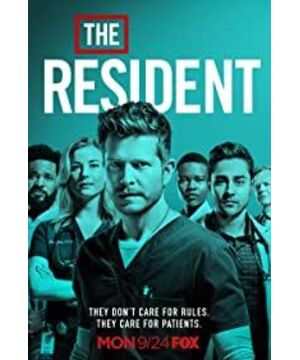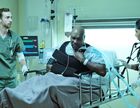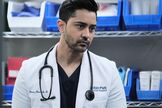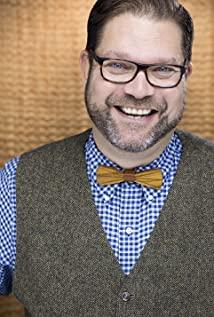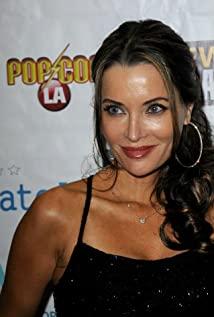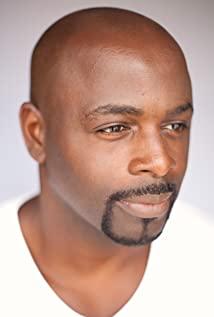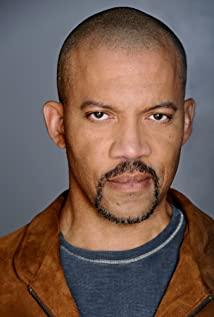Recently, I have watched a lot of medical programs and dramas by accident. This "Physician in Residence" is my favorite. The reason is: to explore the depth of the problem.
The structure of the show is actually very simple, the resident physician (the doctors who are new to practice in the United States must start with the resident physician, that is, the lowest-level doctor) Conrad, his nurse girlfriend, and his Harvard Medical School The story of a graduated Indian intern, who is at the bottom of the medical talent pyramid, bravely challenged the seniors and authorities in the hospital, and cared for patients with sincerity.
However, under this seemingly simple mainline structure, "Physician in Residence" explores many problems within the American medical system, some of which are contradictions between doctors and patients, and some are purely contradictions within the medical and nursing system.
For example, overtreatment. The patient who was not sick was even intimidated and tricked by Dr. Hunt, an authority in the cancer department, to go to her clinic for chemotherapy. The body was destroyed and he was grateful. But the writers did not attribute this kind of thing to simply Dr. Hunter's personal greed for money, but wrote in the endless and real complexity of people and society.
For example, some patients are obviously not sick, but they still can't let go of the tragedy that their loved ones were found to be incurable in the late stage of cancer, so they always suspect that they are in the early stage of cancer, and they are sent to the black-hearted doctor (see the next episode).
For example, this black-hearted doctor is not only greedy for money. She is indeed an authoritative expert in the field of cancer treatment in the United States, but after the divorce, she felt insecure and tried her best to make money.
Her ex-husband, Dr. Bell, was the director of surgery at this hospital. As a result, he was too old and under too much pressure. He began to shake his hands. During the operation, he stabbed and killed several people, but he concealed it with his own authority and coercion.
Another doctor put it bluntly: You were indeed a good surgeon, but you are getting older and shaking your hands is normal at this age.
They weren't born wanting to do bad things. They studied hard all the way. For example, Dr. Hunter didn't pay off his student loans until he was 40 years old, and he ate instant noodles all the time in college. For example, Bell has left a lot of good names in the history of surgery.
But at some point, they went bad. However, their authority and prestige remain.
The skilled Dr. Okafor had to act as a scalpel stand-in for the trembling Bell, and was angry with him.
The reverence for experience and authority in the field of doctors led Bell and Hunter to squander their capital, even to the death.
However, wave after wave of distinguished patients traveled across the oceans to find Bell for surgery. As a result, the stomach was stabbed to pieces, but they thought Bell saved his life. They were grateful and gave away a gold watch, but they didn't know Bell's nickname in the hospital. Yes: the hand of death.
Thinking about ourselves, do we have to wait for two months to see a doctor with a white beard?
The eccentric psychology of patients and doctors, intertwined and superimposed, combined with the pyramid structure of the medical world, finally allows Bell and Hunter to do whatever they want.
Who is wrong? It seems no one is right.
There are also many such issues to discuss, such as the issue of making money in hospitals, doctors and medical insurance, the application of technological equipment in surgery, whether patients are allowed to give up treatment and go home to die, how doctors cover up their mistakes, etc. Doctors are all written as bad people, let alone good people. This is more like the real world.
Although in this drama, I can believe that the heroine and heroine of Jintongyuyu must eventually overthrow the hegemony of Hunter and Bell and expose their scandals. But the subtext given in the play is that these problems seem unsolved.
The characteristics of the medical industry require that practitioners must be experienced. The more experienced a doctor will become an authority respected inside and outside the world. After becoming an authority, he will become better or worse, and whether he abuses his power and influence is up to him.
Although it's a bit weak to say that, I still liked that episode where Conrad's medical teacher came to the hospital to see a doctor and said that he always saw ghosts. Later, Conrad discovered that the so-called ghosts were all the people the medical teacher had failed to treat or misdiagnosed:
Christopher, 43, engineer, car accident, if I had operated on him 10 minutes earlier, he wouldn't have died...
At the end of that episode, the medical teacher said that she wanted to be quiet for a while in the operating room. She looked back and saw that the room was full of "ghosts", and she said, I'm sorry.
Just like the benevolence of doctors in Chinese, this drama finally pinned its hopes on the personal moral conscience of medical practitioners. After all, the medical contradictions that cannot be eradicated by the legal system in the United States may really be unsolved. It can only be expected from the level of human calling.
View more about The Resident reviews


